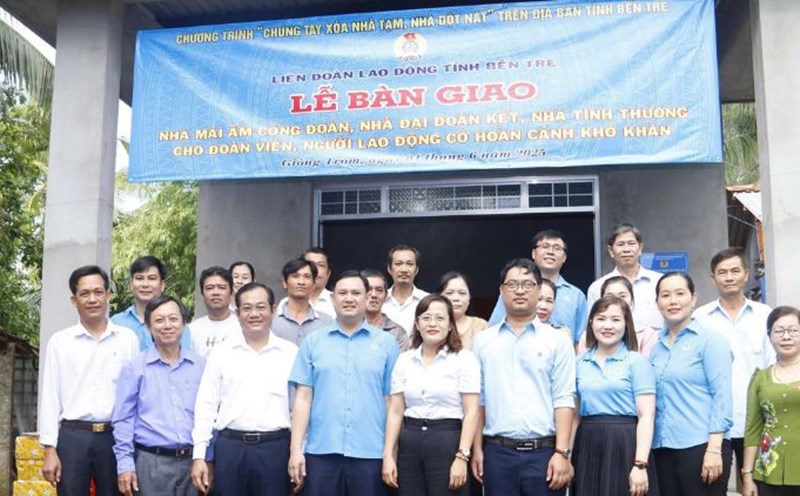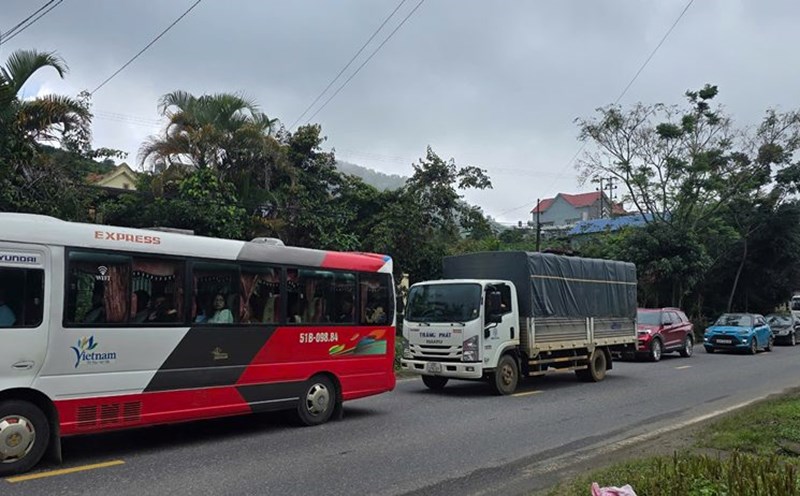On June 28, the Steering Committee for Eliminating Temporary and Dilapidated Houses of Quang Binh province said that in the period of 2024-2025, the whole province has focused on leading, directing drastically, and mobilizing many resources to implement programs to eliminate temporary and dilapidated houses.
As of June 26, the first phase of the program has started construction of 1,450 new houses for poor and near-poor households, reaching 100% of the plan, expected to be completed before June 30. Phase 2 has now started construction on 129/150 units, reaching 86%. Localities have mobilized social resources of more than 23 billion VND, tens of thousands of working days, and hundreds of tons of construction materials.
At the same time, the housing support program for people with revolutionary contributions has also achieved positive results, with 2,177/2,239 houses under construction, reaching more than 97%. In addition to the support from the central budget, the province has arranged additional funding, at the same time calling for socialization of nearly 2.2 billion VND and mobilizing hundreds of working days.
For housing support in ethnic minority and mountainous areas, up to now, construction of 861/1,391 new apartments for poor households has been started, reaching 62%. In particular, the near-poor household group has had its support list approved, but many houses have not been implemented due to problems with resources and land.
Quang Binh Provincial Party Secretary Le Ngoc Quang acknowledged the sense of responsibility, determination of all levels and sectors, the support of businesses and the efforts of the people to overcome difficulties.
The Secretary of the Quang Binh Provincial Party Committee proposed to urgently complete the Steering Committees at all levels after the merger, develop a comprehensive strategy on housing security, associated with building new rural areas and developing civilized urban areas.
At the same time, Mr. Le Ngoc Quang requested to promote digital transformation in management, supervision, and integration of data on poor households and households with housing difficulties across the province, ensuring transparency, accuracy, and no missing subjects.
The work of propagating, mobilizing socialization and managing the "For the Poor" Fund must be focused on, along with strengthening inspection, supervision, timely commendation and replication of good models.











